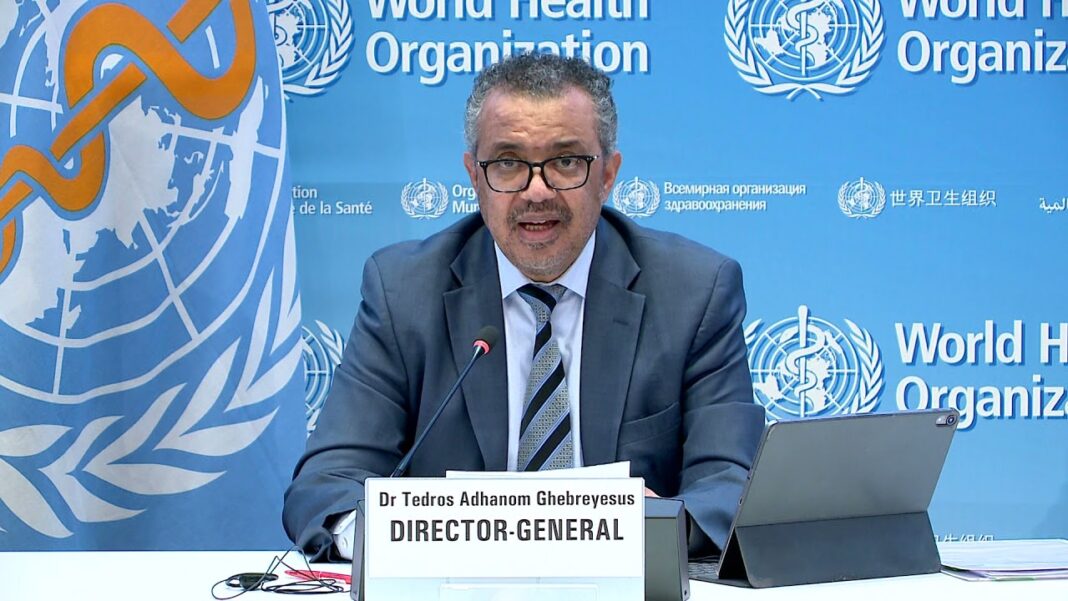A former World Health Organization (WHO) official, Dr. David Bell, said he is concerned about the proposed amendments to the U.N.’s 2005 International Health Regulations (IHR), also being called the pandemic treaty or pandemic accord. Bell said if ratified, the treaty would give power to a small group of WHO officials and effectively take away the sovereignty of countries around the globe.
“There are a lot of ways that even though it doesn’t directly change sovereignty, in effect it does, it takes away the ability of the people of that country to make their own decisions,” Bell said during an interview with EpochTV’s American Thought Leaders program.
Bell is the former WHO program head for malaria and febrile diseases at the Foundation for Innovative New Diagnostics (FIND) in Geneva and director of Global Health Technologies at the Intellectual Ventures’ Global Good Fund. He is currently on the board of Pandemics Data & Analytics (PANDA), a group studying the world’s response to COVID-19.
Amendments to the IHR were considered in the initial draft (pdf) of the global pandemic treaty by the World Health Assembly on May 22–26 and the final draft will need to be passed by 50 percent of member countries next year, then the treaty will need to be ratified by individual governments in two-thirds of the WHO member countries.
Ranking Member of the House global health subcommittee, Rep. Chris Smith (R-N.J.) warned that the potential changes to IHR, specifically the ones the Biden administration is seeking, will undermine U.S. sovereignty.
“The Biden Administration’s absurd proposal to surrender U.S. sovereignty to the corrupt World Health Organization (WHO) is an egregious breach of the constitutional principle that will lead to less accountability and more misconduct by this problematic UN agency,” Smith said in a press statement.
President Joe Biden’s administration is pushing amendments that would give WHO Director-General Tedros Adhanom Ghebreyesus unilateral authority to declare a public health emergency in any nation based on whatever evidence he chooses.
Among the proposed U.S. amendments, one removes an existing requirement in Section 9 that WHO “consult with and seek to obtain verification” from officials in a nation in which a health crisis is suspected before making any public declarations.
On the first day of the 75th Plenary session of the World Health Assembly, May 22, Ghebreyesus called the potential treaty an important part of the “global architecture for health emergency preparedness.”
“The international accord, which member states are now negotiating, will provide a vital overarching legal framework under which we make 10 recommendations in three key areas. First, we need governance that’s coherent, inclusive, and accountable. Second, we need stronger systems and tools to prevent detect and respond rapidly to health emergencies. And third, we need adequate and efficient financing domestically and internationally.”
Bell said the power the treaty gives the Director General (DG) and the regional directors would be destructive to nations’ sovereignty because these WHO officials would have power over countries’ own institutions.
“It has huge implications for trade and economies and we’re giving power to a person and an emergency committee which the DG consults with which has been set up under the IHR amendments, but [the DG] is not required to go with that committee’s findings. He can override that committee and still declare a public health emergency if he or she thinks they should,” said Bell.
In addition, Bell is concerned that private corporations would be contributing billions of dollars to the WHO and pandemic initiatives, and private donors could influence the DG or regional directors. These donors could influence, “essentially the issues that have a huge impact on the health and freedom of people and populations,” said Bell.
Not only does the treaty give too much power to the DG but it could advantage certain countries, said Bell.
By Masooma Haq and Jan Jekielek








